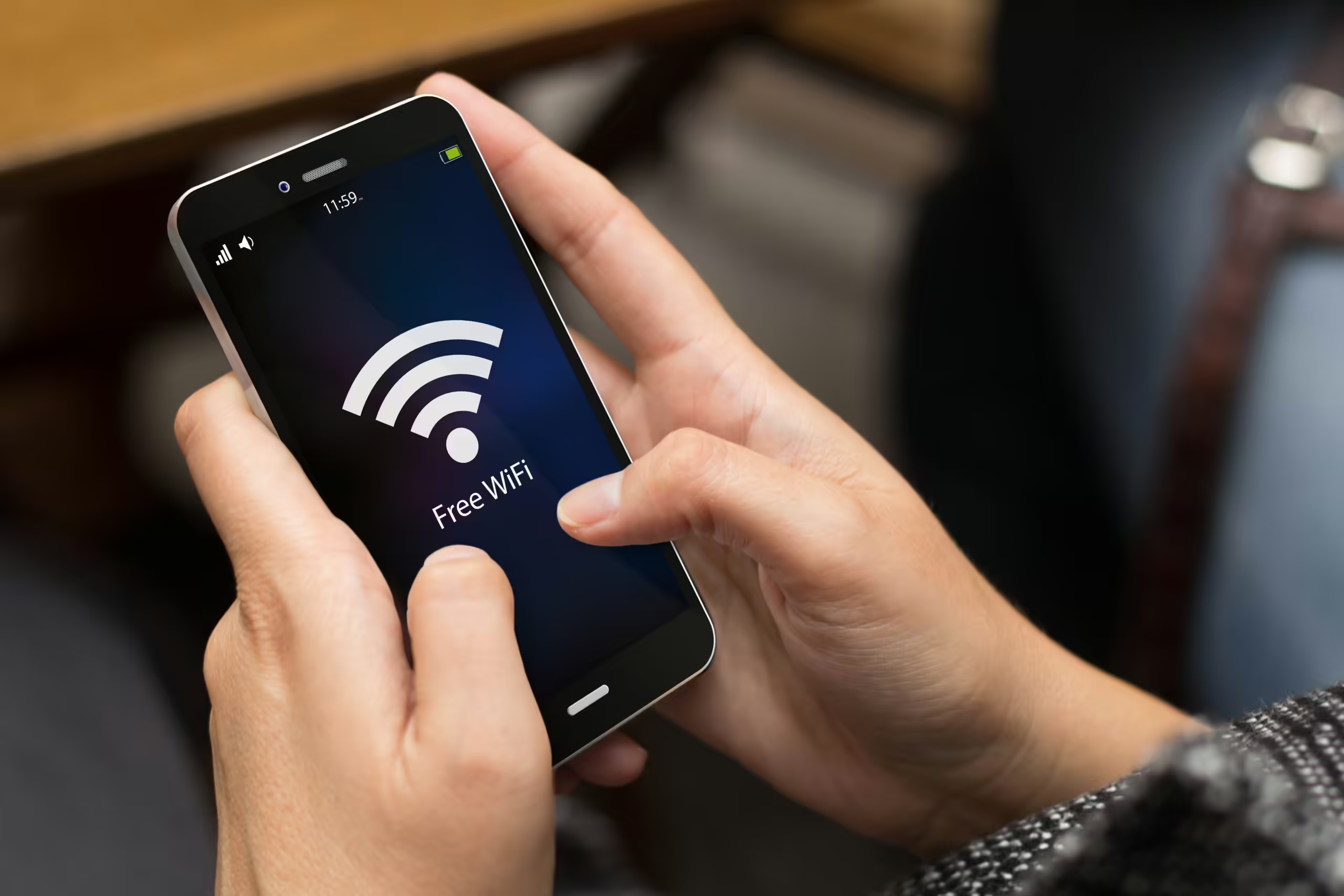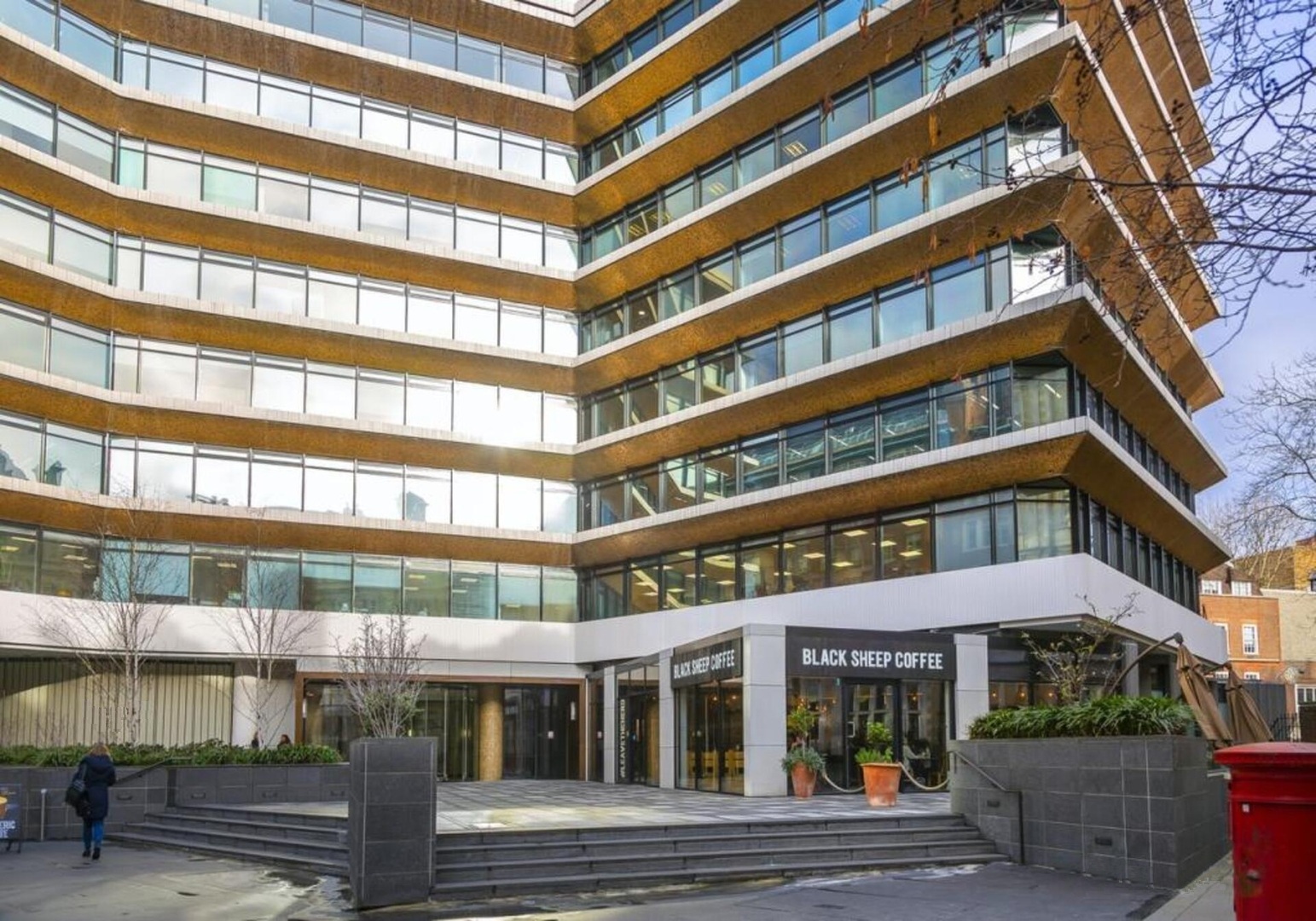BLOG
Tech Tips: The Unknown Threats of Public Wi-Fi Networks

Wi-Fi has become a pivotal feature in modern society, but it isn’t always available in locations where data on your mobile device might have poor signal. When faced with a public access point while your data signal is poor, the convenience of free internet access is hard to resist, but Wi-Fi from sources outside of your own network can often come with risks that you may not even be aware that you’re taking. The dangers of public Wi-Fi are often underestimated, or completely unrealized.
Generally, most businesses now offer Guest Wi-Fi networks. However, before you connect, it’s important to understand the risks involved. Here’s why you should be cautious about using public Wi-Fi and some tips to protect yourself.
The Hidden Threats of Public Wi-Fi
1. Man-in-the-Middle Attacks (MitM)
One of the most common threats on public Wi-Fi is a Man-in-the-Middle attack. In this scenario, a hacker positions their own connection between your device and the internet connection, intercepting the data you send and receive. This can lead to the theft of sensitive information like passwords, financial details, and personal data.
2. Unencrypted Networks
Many public Wi-Fi networks lack proper encryption, making it easy for hackers to intercept the data transmitted over these networks. Without encryption, your personal information is vulnerable to anyone with the right tools and knowledge–and neither is difficult to obtain.
3. Malicious Hotspots
Hackers can set up rogue hotspots that mimic legitimate public Wi-Fi networks. These malicious hotspots trick users into connecting, giving hackers direct access to their devices and data. These hotspots can also lead to phishing attempts by presenting fake screens for sign ons to popular websites like Microsoft, or even banking institutions.
4. Malware Distribution
Public Wi-Fi can be used to spread malware. Hackers exploit vulnerabilities in your device’s software to install malware, which can then steal your data or cause other harm. Older devices, which may not have the latest security updates to guard against newer versions of malware, are particularly susceptible to this.
6. Session Hijacking & Network Snooping
If a hacker gains access to your session cookies, they can impersonate you on websites you’re logged into. This can give them access to your accounts and personal information.
With the right tools, attackers can eavesdrop or ‘snoop’ on Wi-Fi signals, capturing data being transmitted between your device and the internet. This means your online activities can be monitored and tracked.
How to Stay Safe on Public Wi-Fi
While the risks are real, there are several steps you can take to protect yourself when using public Wi-Fi:
Use a VPN
A Virtual Private Network (VPN) encrypts your internet connection, making it more secure and protecting your data from eavesdroppers. It’s one of the most effective ways to ensure your online activities remain private. VPNs can sometimes be provided by your place of employment, but it’s often a good practice to use an independent VPN service for all public Wi-Fi locations.
Enable HTTPS
Always ensure that the websites you visit use HTTPS, which encrypts data between your browser and the website. Many browsers now do this automatically, but it’s always good to double-check to make sure that the website is secure.
Avoid Sensitive Transactions
Try to avoid accessing sensitive accounts or conducting financial transactions over public Wi-Fi. Save those activities for when you’re on a secure, private network. This means avoiding checking important business accounts, entering your bank or credit card information anywhere, or entering important private data on any website while on a public Wi-Fi connection.
Disable File Sharing
Turn off file sharing and other sharing options when connected to a public network to prevent unauthorized access to your device. This can stop malicious actors from dropping dangerous files onto your device without you being aware of it happening.
There are many other reasons why you should avoid overusing public Wi-Fi networks, just as there are other safety precautions that you can take when faced with no other option. Unfortunately, users can never be 100% sure just who is capable of seeing what they’re doing on that network, so it’s always best to err on the side of caution when using a public network. Public Wi-Fi is undeniably convenient, but it comes with significant risks; when it comes to protecting your data, always approach your Wi-Fi habits with a grain of suspicion over how your data can be used.
For other Tech Tips, feel free to tech out our prior Tech Insight articles, and if you have concerns over the safety of your public or private Wi-Fi networks at your place of business, give our experienced tech team a call today!


